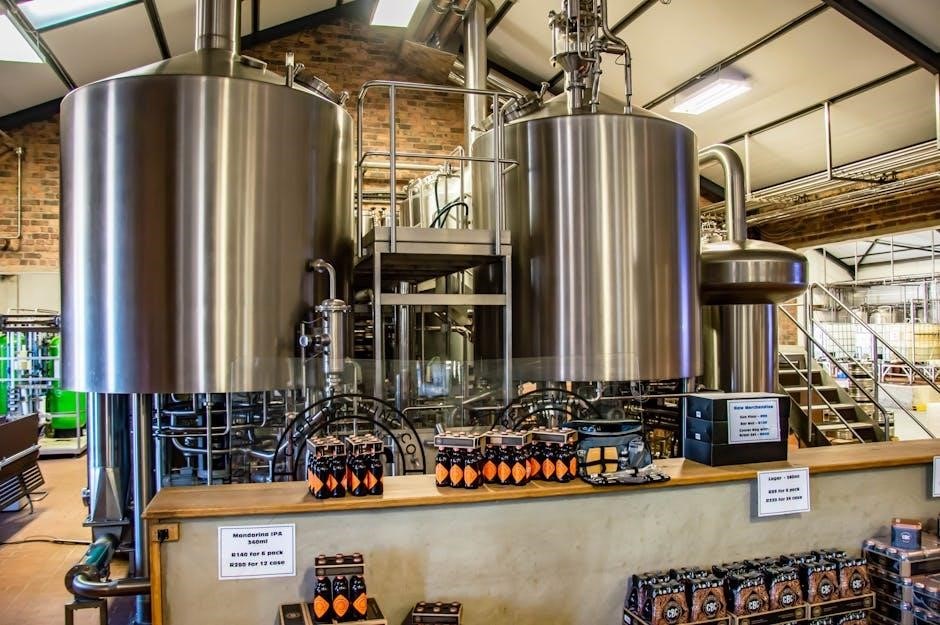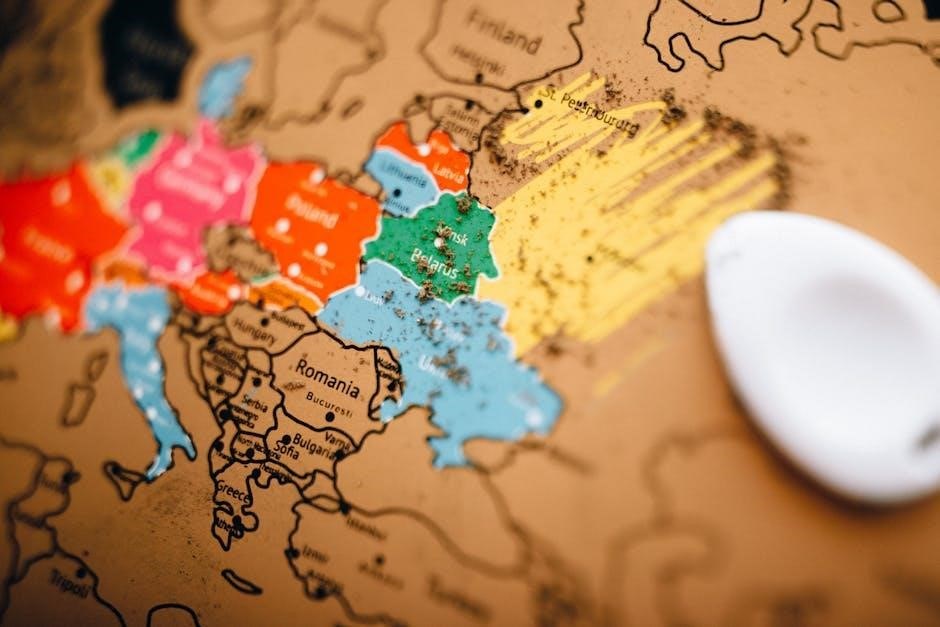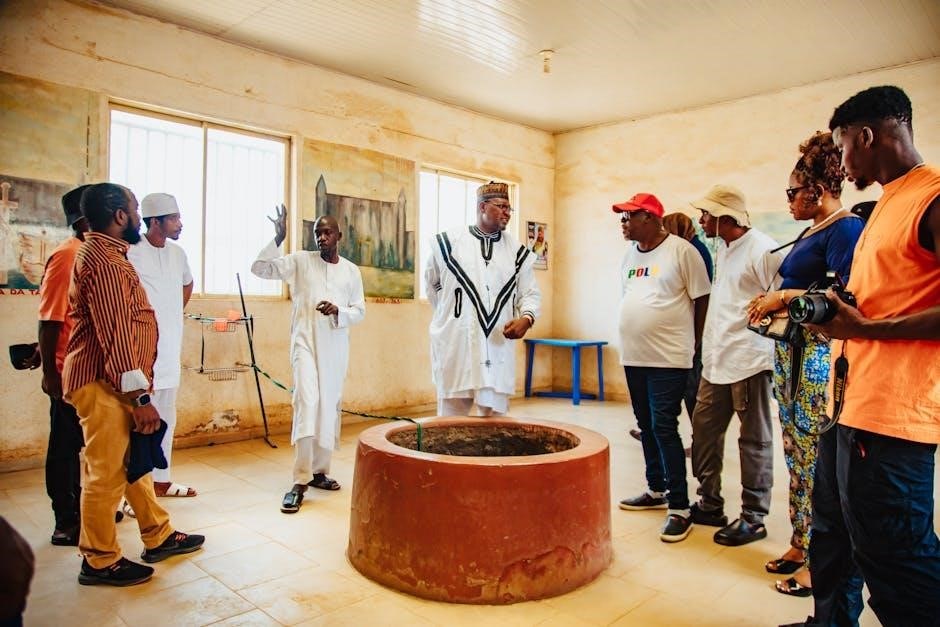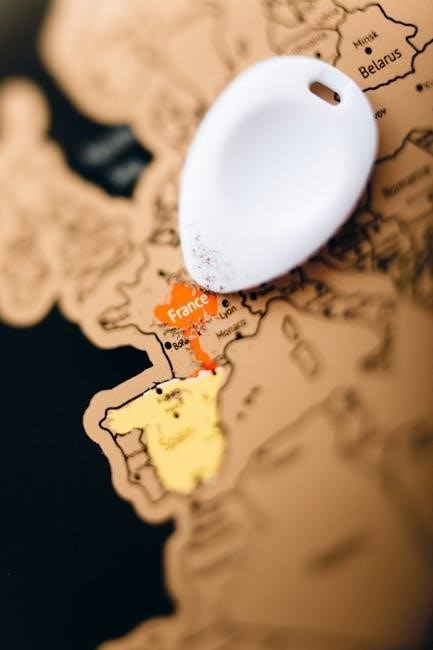Challah‚ a traditional Jewish bread‚ symbolizes community and spirituality. Guides often remark on its historical significance‚ cultural importance‚ and the role of factories in preserving this cherished tradition.
The History and Tradition of Challah in Jewish Culture
Challah‚ a braided bread‚ holds deep cultural and spiritual significance in Jewish tradition. Originating in ancient Israel‚ it symbolizes the “three measures of flour” from the Torah. Guides often highlight its historical roots‚ tracing back to the Temple era‚ where challah represented a sacred offering. The bread’s braided design‚ typically three strands‚ symbolizes wisdom‚ peace‚ and truth. Tour guides emphasize its role in Shabbat and holiday rituals‚ where challah is a central symbol of joy and gratitude. The separation of dough‚ known as “hafrashat challah‚” is a sacred act reflecting faith and tradition. This bread embodies Jewish heritage‚ connecting generations through its preparation and shared communal experiences‚ making it a timeless symbol of Jewish identity and spirituality.

The Role of Challah Factories in Preserving Tradition
Challah factories play a vital role in preserving Jewish culinary traditions by maintaining ancient recipes and techniques. Guides often explain how these factories ensure the bread’s authenticity‚ adhering to strict kosher standards and traditional baking methods. By mass-producing challah‚ factories make this sacred bread accessible to communities worldwide‚ fostering cultural continuity. They also adapt to modern demands while honoring heritage‚ balancing tradition with innovation. Many factories emphasize sustainability‚ using eco-friendly practices to align with contemporary values. These establishments not only sustain the tradition but also serve as cultural ambassadors‚ connecting people to their roots through the timeless ritual of challah baking. Their efforts ensure this cherished tradition endures for future generations.

The Tour Guide’s Perspective at a Challah Factory
Tour guides share insights into the art of challah baking‚ highlighting its cultural significance and the meticulous process involved in creating this sacred bread.
Key Remarks and Insights Shared by Tour Guides
Tour guides at challah factories often highlight the bread’s symbolic significance‚ such as its representation of community and spirituality. They explain the meticulous process of dough preparation and braiding‚ emphasizing the care and tradition behind each loaf. Guides also share stories about the factory’s history and its role in preserving Jewish heritage. Many remark on the emotional connection visitors feel when learning about the bread’s cultural importance. Additionally‚ guides often discuss the factory’s commitment to sustainability and innovation while maintaining traditional methods. Their insights provide a deeper understanding of challah’s role in Jewish culture and its enduring relevance in modern times.
The Importance of Storytelling in Guided Tours
Storytelling is a powerful tool in guided tours‚ bringing history and culture to life. Guides at challah factories share tales of tradition‚ heritage‚ and community‚ creating an emotional connection with visitors. By recounting the origins of challah‚ its symbolism in Jewish rituals‚ and personal anecdotes‚ guides transform the tour into a memorable experience. These stories highlight the bread’s role in uniting families and communities across generations. The narratives also reveal the craftsmanship and dedication behind each loaf‚ fostering appreciation for the art of challah making. Through storytelling‚ visitors gain a deeper understanding of the cultural and spiritual significance of challah‚ making the tour both educational and inspiring.

The Process of Challah Making
Challah making involves mixing‚ kneading‚ proofing‚ braiding‚ and baking. Each step is a blend of tradition and skill‚ creating a delicious‚ symbolic loaf.
From Dough Preparation to Braiding
The process begins with mixing flour‚ yeast‚ water‚ eggs‚ and sugar to create a smooth dough. Kneading ensures elasticity‚ followed by proofing to allow the dough to rise. Once risen‚ the dough is divided into strands‚ which are then braided meticulously. This step is both practical and symbolic‚ reflecting the unity and joy associated with challah. Guides often highlight how each braid represents a connection to tradition and family. The methodical process‚ passed down through generations‚ combines skill and spirituality‚ making every loaf a testament to heritage and craftsmanship.
The Spiritual and Cultural Aspects of Baking Challah
Baking challah is deeply rooted in Jewish spirituality and culture‚ often performed with intention and gratitude. Guides emphasize the significance of separating challah dough as an act of faith and charity. The braiding symbolizes unity and the bond between generations. Many view the process as a form of meditation‚ connecting them to their heritage. This tradition‚ passed down through generations‚ strengthens community ties and preserves cultural identity‚ making each loaf a symbol of love‚ faith‚ and tradition.

Economic and Environmental Aspects of Challah Factories
Challah factories balance profitability with sustainability‚ adopting eco-friendly practices to reduce waste and energy use while supporting local economies through employment and sourcing ingredients responsibly.
Sustainability Practices in Modern Challah Production
Modern challah factories prioritize sustainability by implementing eco-friendly practices. Many use organic‚ locally-sourced ingredients to reduce environmental impact and support local farmers. Energy-efficient ovens and waste reduction programs are common‚ ensuring minimal carbon footprints. Some factories recycle water and implement zero-waste policies‚ aligning with global sustainability goals. Additionally‚ eco-conscious packaging is increasingly adopted to minimize plastic use. Tour guides often highlight these efforts‚ explaining how traditional methods are adapted to meet modern environmental standards. These practices not only preserve the cultural heritage of challah but also promote a healthier planet for future generations. Sustainability has become a cornerstone of challah production‚ blending tradition with innovation.
The Economic Impact of Challah Factories on Local Communities
Challah factories significantly contribute to local economies by creating jobs and stimulating economic growth. These factories often source ingredients from local farmers‚ fostering partnerships and supporting agricultural communities. Additionally‚ they generate revenue through tours and sales‚ attracting visitors who spend money in nearby businesses. Many factories also invest in local infrastructure and community programs‚ further enhancing their economic impact. Tour guides frequently highlight how these establishments serve as vital economic hubs‚ blending tradition with financial sustainability. By preserving cultural heritage while driving local development‚ challah factories play a dual role in enriching both the community and its economy. Their presence is often seen as a positive force for regional prosperity and cultural preservation.

Visitor Experiences and Feedback
Visitors often describe challah factory tours as enlightening and immersive‚ offering cultural insights and hands-on experiences. Many appreciate the opportunity to braid dough and connect with tradition‚ fostering a sense of community and appreciation for Jewish heritage.
Common Reactions and Impressions from Tour Participants
Tour participants often express fascination with the blend of tradition and modernity in challah factories. Many find the process of braiding dough deeply meditative and culturally enriching. Visitors frequently comment on the warmth and hospitality of the factory staff‚ creating a welcoming atmosphere. The hands-on experience of shaping challah allows tourists to connect with Jewish heritage on a personal level. Emotional reactions are common‚ as the tour evokes a sense of pride and connection to tradition. Overall‚ participants leave with a deeper appreciation for the cultural significance of challah and its role in Jewish identity.

How Tour Guides Enhance the Visitor Experience
Tour guides play a pivotal role in enriching the visitor experience at challah factories by sharing insightful remarks and anecdotes. Their expertise in explaining the historical and cultural significance of challah ensures a deeper understanding. Guides often weave stories about the bread’s symbolism‚ making the process relatable and engaging. They also highlight the factory’s role in preserving tradition while adapting to modern demands. Hands-on activities‚ such as braiding dough‚ are frequently led by guides‚ allowing visitors to connect with the craft personally. Their passion and knowledge foster a sense of connection and appreciation‚ transforming a simple tour into a memorable cultural journey.

Challenges and Innovations in the Industry
The industry faces challenges in balancing tradition with modern demands‚ prompting innovations like automation and sustainable practices to preserve cultural integrity.

Adapting to Modern Trends While Preserving Tradition
Challah factories are innovating by incorporating modern baking techniques while maintaining traditional recipes. Guides highlight how automation enhances efficiency without compromising the bread’s cultural essence. Sustainability practices‚ such as using eco-friendly packaging and sourcing ingredients locally‚ are also being adopted. These changes ensure that challah remains relevant in today’s market. The balance between tradition and innovation is crucial‚ as it allows the industry to cater to evolving consumer preferences while honoring its heritage. By embracing these advancements‚ challah factories not only preserve their cultural identity but also appeal to a broader audience‚ ensuring the continuity of this beloved tradition for future generations.
The Future of Challah Factories and Tours
The future of challah factories and tours is promising‚ with a focus on blending tradition with modern demands. As sustainability becomes a priority‚ factories are likely to adopt greener practices‚ such as using eco-friendly packaging and reducing waste. Tours may evolve to include interactive experiences‚ like virtual reality glimpses into the baking process or hands-on workshops. Additionally‚ the rise of health-conscious consumers could lead to innovations like gluten-free or vegan challah options. By embracing these changes while preserving cultural heritage‚ challah factories can attract a new generation of enthusiasts. Educational programs and collaborations with local communities will further enhance the appeal of these tours‚ ensuring their relevance for years to come.



